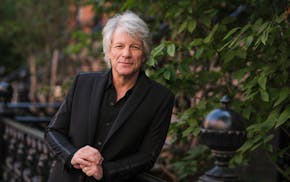There's a bunch of bad acting at the beginning of "The Maids," but don't worry. It's supposed to be bad.
The play opens on Solange (Sara Marsh) and Claire (Jane Froiland), a maid and her mistress having a strange confrontation in the mistress' bedroom. Soon enough, we realize that they are trying on new identities. Claire is actually a maid, too, and Solange is her sister. The two are role-playing a plan to kill their absent mistress (Emily Bridges).
Anyway, that's who it seems like the three women are; one tantalizing facet of Jean Genet's absurdist masterpiece is that we are never sure if any of these women are the person they present themselves to be.
In part, "The Maids" is a play about playacting, and about how a person who is descending into madness may lose herself so completely that she no longer remembers what's real and what's not.
A number of details in this sure-handed production (directed by Marsh, who took on that role after illness befell original director Mel Day) underscore the blurring of reality and artifice: The audience is arranged in a U shape around the bedroom, so we're essentially in the boudoir with the women. Light and sound cues are highlighted with jarring noises and clearly visible technicians. And, as the maids play their little mind games, they keep switching characters and even names.
Our role is to ponder what this sturdy tale, inspired by a pair of French maids who killed their employer in the 1930s, means today. The true crime and its timeless themes — class, gender, power, sex — also inspired a great book (Ruth Rendell's "A Judgment in Stone") and a great movie ("La Ceremonie"), both of which have lots to say about those themes and both of which you should add to your library queue right now.
The play is a chilly, intellectual piece of work, much more stylized than either the book or the movie, but the living, breathing actors give it a warmth and immediacy that feel extremely current.
What if these smart, funny women saw each other as allies, I kept thinking, instead of enemies? What if the real tragedy in "The Maids" is not a murder that may or may not happen, but the fact that these characters waste their time bickering when they could be uniting to face the real enemies that entrap them all?
"The Maids" has a few surprises in store as it twists toward its devastating conclusion, but the nicest surprise may be this realization: One benefit of that bad acting at the beginning is that it gives us even more appreciation for the good stuff that comes at the end.
chris.hewitt@startribune.com • 612-673-4367 • Twitter: @HewittStrib
Olympian Kristi Yamaguchi is 'tickled pink' to inspire a Barbie doll

After 4 decades in music and major vocal surgery, Jon Bon Jovi is optimistic and still rocking
Rom-com author Emily Henry knows the secret to having a healthy relationship with love

